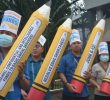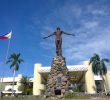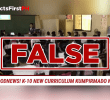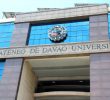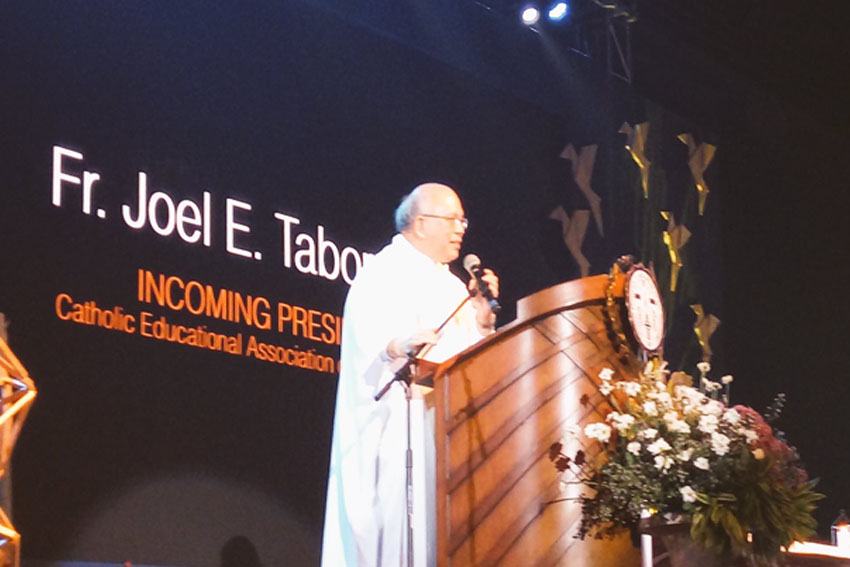
Ateneo de Davao University President Joel E. Tabora (Photo by Vinci Bueza)
TAGUM CITY, Philippines — Ateneo de Davao University President Fr. Joel Tabora, SJ is elected as President of the Catholic Educational Association of the Philippines, a national association of Catholic schools in the country.
Tabora’s election came as CEAP is holding its 2016 National Convention held at Waterfront Hotel in Cebu City on September 28-30, 2016.
This year’s convention theme is: “Towards 2021: New Spirit, New Fervour at 75. Remember with Gratitude, Renew with Fervor, Set Forth with Faith.”
Common good
In his address to the Annual CEAP Membership Meeting, Tabora explained why the concept of “common good” should be integrated in the association.
“As we move toward 2021 on our 75th anniversary with new fervor and new spirit, the common good is a concept that can give us fresh insight into the nature of our association; it also draws us to cooperate with others in society to achieve a larger common good,” Tabora said.
Such concept, Tabora added, would give a greater insight to CEAP as an organization, and eventually challenged itself in its role in achieving he called “the common good of all.”
Exodus of teachers
The Jesuit priest also raised the mass exodus of private school teachers to teach in public schools—an issue faced by private schools across the country.
“Working with teachers to improve their competence is a difficult task, especially when school resources are low, often taking years of sacrifice and investment. The last administration decided to improve the roster of its public school teachers,” Tabora said.
“But in doing so it used public money to advance their good, but not the common good of all teachers. Effectively, they pirated teachers from our schools. We have been hurt by this public policy which did not respect the common good, but we continue to maintain our educational service in the interest of the common good.”
Challenges
Tabora said the association have been challenged in two ways—it’s faithfulness to what he called a “God-given vocation and identity as Catholic educators” and second, “to actually engage society and transform it according to the demands of the common good” of which he said an integral to this vocation and identity of Catholic schools.
Tabora, a staunch supporter of President Rodrigo Duterte, however, emphasized that CEAP’s challenges will roughly coincide with Duterte’s term of office.
“He is resolute, not wishy washy; he is irreverent, not polished; he is shocking, not irenic. But he loves his people, and he shows it, ready, apparently, to sacrifice life and his Presidency ‘to march into hell for a heavenly cause,’” he said of Duterte’s leadership.
“As we have all witnessed in the meantime, sometimes with elation, sometimes with trepidation, ‘change is here’– one of the first changes being that the President is dead serious about fulfilling his campaign promises. He has wasted no time.”
He also discussed Duterte’s war on illegal drugs, corruption, and other issues of national concern such as the Freedom of Information bill, the peace process with MILF, MNLF, CPP-NDF, federalism, mining, among others.
Admitting that CEAP is doubly challenged under the Duterte administration, Tabora said “the common good, however, calls not only for active cooperation but for critical dialogue not only with supporters of the administration but also with its critics, not only with Christians but also with those in our society who do not recognize Jesus Christ and his teachings.”
“It demands the solidarity of all, including those who are different, ‘ other’ the least and the excluded – the unwashed, the undernourished, the sick, the helpless,” Tabora said.
CEAP has 1,377 member schools across the country. It was founded in 1941, as the national association of Catholic educational institutions in the Philippines.(davaotoday.com)

